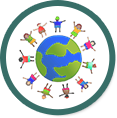Related Pages
- Teaching & Learning
- Curriculum
- Art & Design
- Computing
- Design Technology
- English
- French
- Geography
- History
- Maths
- Music
- Physical Education (PE)
- PE & Sports Premium Grant
- Personal, Social, Health & Economic Education (PSHE)
- Religious Education (RE)
- Science
- Early Years
- Extra Curricular Clubs
- Assessment
- Inclusion
- Special Educational Needs & Disabilities (SEND)
- More Able
- English as an additional language (EAL)
- Pupil Premium
Computing
Finding the right balance with technology is key to an effective education and a healthy lifestyle. We feel the way we implement Computing helps children realise the need for the right balance and one they can continue to build on in their next stage of education and beyond. Upon leaving Suttons, children will be digitally literate on a range of devices for a range of purposes.
Our Computer Scientists
Knowledge:
Through our curriculum, our pupils will develop a thorough knowledge of the fundamental principles of Computing. This encompasses three strands: Computer Science (programming and coding), Information Technology (using computers to organise and present information in different ways) and Digital Literacy (understanding how computers fit into our daily lives). Alongside these key strands, pupils will also have a thorough understanding of how to stay safe online.
Skills:
In EYFS, prerequisite skills for computing are learnt across the seven areas of learning such as being confident to try new activities and show independence, resilience and perseverance in the face of challenge.
In Key Stage 1, Computing is taught as a discrete subject, with our children acquiring a solid grounding in the basics of computing, including understanding algorithms, creating simple programs and learning how to stay safe online.
In Key Stage 2, we build on these skills as the computing curriculum aims to make children computationally aware, teaching them key concepts, including how to predict and analyse results, how to break a problem down into parts, how to spot and use similarities, how to evaluate and approaches to help them problem-solve.
Enrichment Opportunities:
Our children start their Computing journey in the Early Years by accessing cameras, iPads, and interactive whiteboards to play age-related games and activities and listen to music. In Key Stage 1, the children then progress to using specific iPad apps, Bluebots and the computers in the technology suite. In Key Stage 2 children progress even further by using the Chromebooks, Rodocodo (coding software) and Micro:Bits (programmable printed circuit boards).
Curriculum Planning
Curriculum:
Our Computing curriculum uses the Switched-On-Computing scheme interwoven with opportunities to use Rodocodo (coding software) for computer science as well as the Chromebooks to become more digitally literate across a range of subjects.
◊ Computing 3I's: Intent, Implementation & Impact
◊ Computing Skills Progression
◊ Computing Long term Plan

 Contact Us
Contact Us





